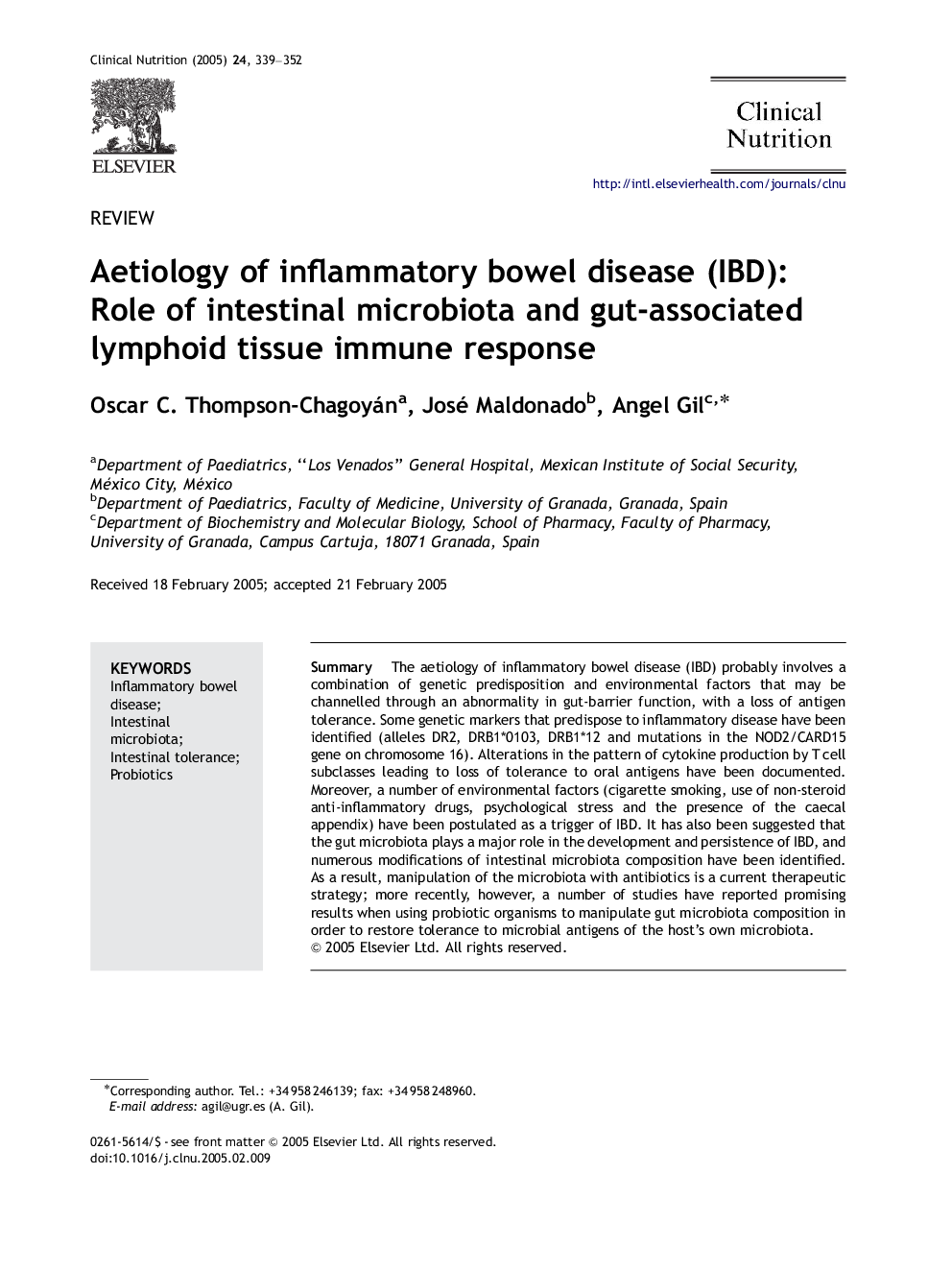| کد مقاله | کد نشریه | سال انتشار | مقاله انگلیسی | نسخه تمام متن |
|---|---|---|---|---|
| 9073063 | 1142761 | 2005 | 14 صفحه PDF | دانلود رایگان |
عنوان انگلیسی مقاله ISI
Aetiology of inflammatory bowel disease (IBD): Role of intestinal microbiota and gut-associated lymphoid tissue immune response
دانلود مقاله + سفارش ترجمه
دانلود مقاله ISI انگلیسی
رایگان برای ایرانیان
کلمات کلیدی
موضوعات مرتبط
علوم پزشکی و سلامت
پزشکی و دندانپزشکی
مراقبت های ویژه و مراقبتهای ویژه پزشکی
پیش نمایش صفحه اول مقاله

چکیده انگلیسی
The aetiology of inflammatory bowel disease (IBD) probably involves a combination of genetic predisposition and environmental factors that may be channelled through an abnormality in gut-barrier function, with a loss of antigen tolerance. Some genetic markers that predispose to inflammatory disease have been identified (alleles DR2, DRB1*0103, DRB1*12 and mutations in the NOD2/CARD15 gene on chromosome 16). Alterations in the pattern of cytokine production by T cell subclasses leading to loss of tolerance to oral antigens have been documented. Moreover, a number of environmental factors (cigarette smoking, use of non-steroid anti-inflammatory drugs, psychological stress and the presence of the caecal appendix) have been postulated as a trigger of IBD. It has also been suggested that the gut microbiota plays a major role in the development and persistence of IBD, and numerous modifications of intestinal microbiota composition have been identified. As a result, manipulation of the microbiota with antibiotics is a current therapeutic strategy; more recently, however, a number of studies have reported promising results when using probiotic organisms to manipulate gut microbiota composition in order to restore tolerance to microbial antigens of the host's own microbiota.
ناشر
Database: Elsevier - ScienceDirect (ساینس دایرکت)
Journal: Clinical Nutrition - Volume 24, Issue 3, June 2005, Pages 339-352
Journal: Clinical Nutrition - Volume 24, Issue 3, June 2005, Pages 339-352
نویسندگان
Oscar C. Thompson-Chagoyán, José Maldonado, Angel Gil,